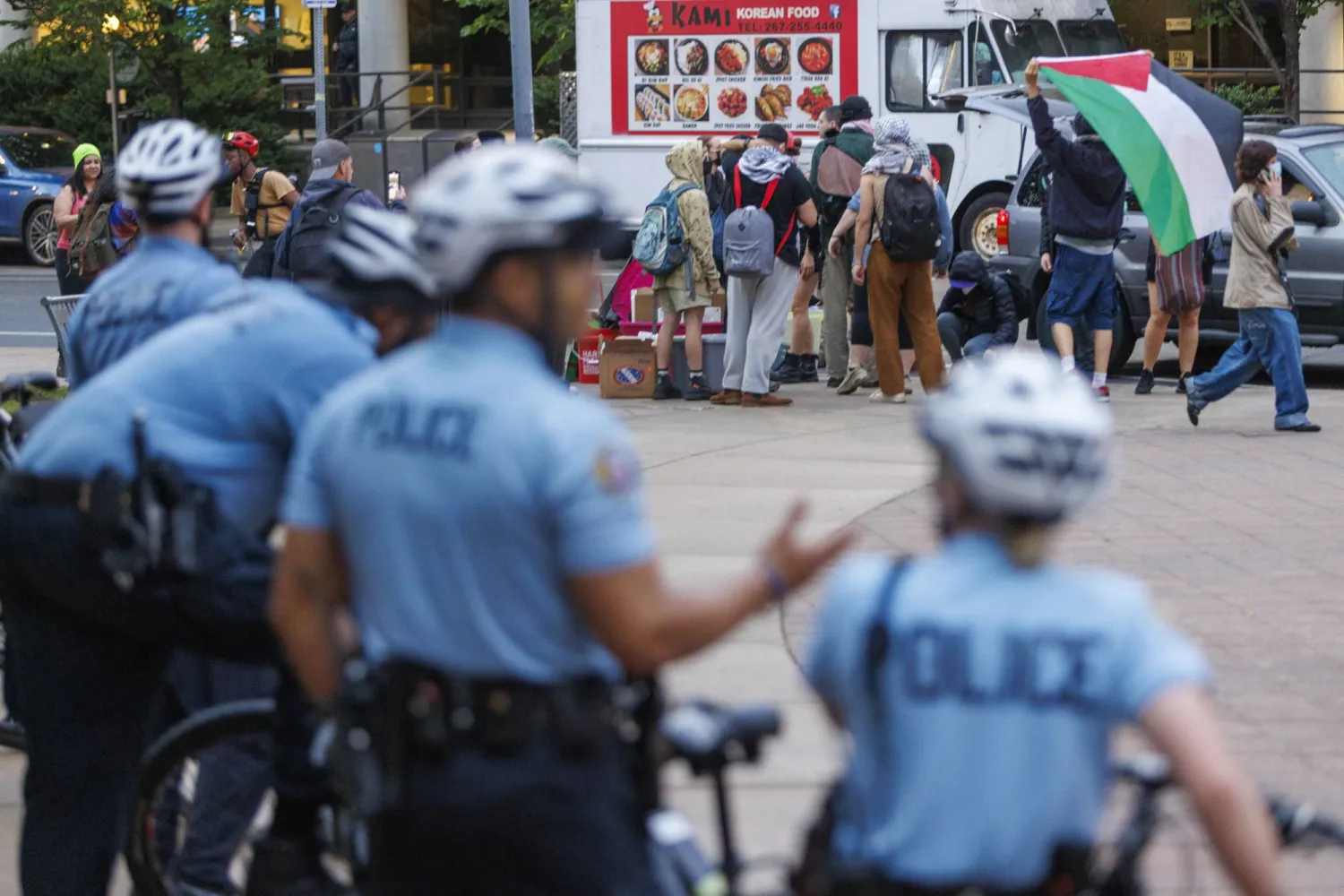Protesters packed up their belongings and left a pro-Palestinian encampment at Drexel University on Thursday after the school announced a decision to have police clear the encampment, The Associated Press reported.
University President John Fry said in a statement that he decided to have campus police and public safety officers join Philadelphia police in clearing the encampment as peacefully as possible. News outlets reported that police gave protesters a warning to clear the encampment and protesters left.
Fry said the university is committed to protecting the community members’ right to assemble peacefully and express their views, but he has the responsibility and authority to regulate campus gatherings to ensure safety and fulfill the mission to educate students.
“An unauthorized encampment that involves large numbers of people unaffiliated with Drexel trespassing on our campus is illegal,” Fry said. “The language and chants coming from this demonstration, underscored by protestors’ repugnant ‘demands,’ must now come to an end.”
Protesters gathered their belongings as dozens of officers on bicycles arrived around 5:20 a.m., but in less than a half hour only a few items remained on the Korman Family Quad where the 35-tent encampment had been, the Philadelphia Inquirer reported.
“The campers picked up their belongings for the most part and left by their own free will,” AP quoted Philadelphia Police Sgt. Eric Gripp as saying
In a statement posted online early Thursday, protest organizers said they had launched a “strategic retreat” to ensure the “safe passage of all people and resources out of the liberated zone.” They said that neither city nor campus police delivered a warning to clear the encampment but rather “we warned ourselves.”
The organizers also said “we succeeded in our aim to disrupt — a university-wide lockdown imposed by cowardly leadership and an excessive police presence drained university resources for six days.” The group also vowed to stay active, writing: “We won’t back down, we will return, and we will come back stronger.”
The encampment had persisted despite Fry's threat earlier this week to have the encampment cleared. Fry said Tuesday that classes would be held virtually for a third day on Wednesday after administrators tried to open a line of communication to the protesters but were rebuffed. News outlets reported that the university announced Wednesday night that the campus would return to normal operations Thursday.
In his statement early Thursday, Fry said previous requests for protesters to disperse had been ignored, but he was asking Drexel affiliates to leave the encampment so police could “escort any remaining trespassers off our campus.”
A wave of pro-Palestinian tent encampments on campuses has led to over 3,000 arrests nationwide.
Harvard University held its commencement Thursday following a weekslong pro-Palestinian encampment. Hundreds of students in graduation robes walked out chanting “Free, Free Palestine” a day after the school announced that 13 Harvard students who participated in a protest encampment would not be able to receive diplomas alongside their classmates.
Also Thursday, the leaders of Northwestern University and Rutgers University are expected to testify at a House Committee on Education and the Workforce hearing about concessions they gave to pro-Palestinian protesters to end demonstrations on their campus. The chancellor of the University of California, Los Angeles, also was scheduled to appear at the latest in a series of hearings looking into how colleges have responded to the protests and allegations of antisemitism.
Pro-Palestinian Protesters Leave after Drexel University Decides to Have Police Clear Encampment

Police stand by as protestors prepare to leave a pro-Palestinian encampment at Drexel University early Thursday, May 23, 2004 in Philadelphia. (Alejandro A. Alvarez/The Philadelphia Inquirer via AP)

Pro-Palestinian Protesters Leave after Drexel University Decides to Have Police Clear Encampment

Police stand by as protestors prepare to leave a pro-Palestinian encampment at Drexel University early Thursday, May 23, 2004 in Philadelphia. (Alejandro A. Alvarez/The Philadelphia Inquirer via AP)
لم تشترك بعد
انشئ حساباً خاصاً بك لتحصل على أخبار مخصصة لك ولتتمتع بخاصية حفظ المقالات وتتلقى نشراتنا البريدية المتنوعة







